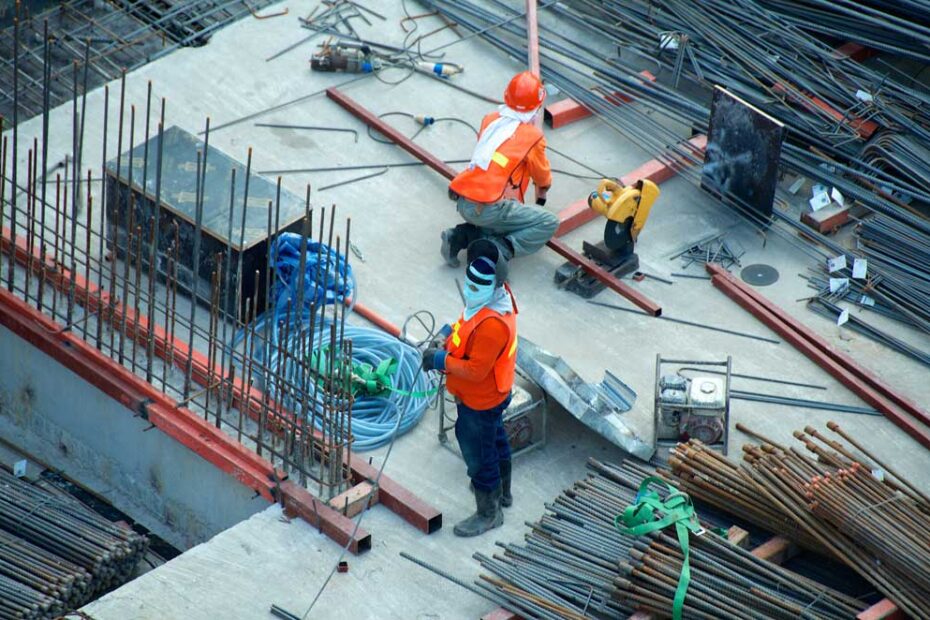Workers’ Compensation for Slip on Construction Work
Construction workers experience some of the most dangerous conditions of any workplace. In the course of their day-to-day jobs, they handle heavy machinery, hazardous chemicals, extreme heights, and are exposed to the elements. Unsurprisingly, along with emergency services, these conditions make construction sites some of the most dangerous workplaces in Australia. According to Safe Work Australia, in 2017 the construction industry saw 33 on-the-job fatalities, with 21 reported in 2018 at the time of the report, making the construction industry the third-most dangerous industry in which to work.
Common construction hazards
Due to the highly demanding nature of construction jobs, there are a number of common causes for both injury and fatality:
- Chemicals: Construction sites often make use of hazardous chemicals which can cause chemical burns or poisoning with immediate contact, as well as long term respiratory illnesses.
- Noise: Construction sites use loud machinery and equipment such as power tools, jackhammers, bulldozers and more. Long term exposure to these noisy machines can result in headaches, ringing in the ears and even hearing loss, often called ‘industrial deafness’.
- Exposure to the elements: Most construction work takes place outside while exposed to sun, wind and inclement weather. Sun exposure can cause sunburn, skin cancer, dehydration and heatstroke, particularly in certain areas of the country. Windburn can also damage skin, and inclement weather such as rain or high winds can lead to unfavorable working conditions and contribute to other mistakes and malfunctions.
- Vehicle accidents: Construction work requires the use of heavy driving equipment including big trucks, earth-moving cranes and excavators which can cause a great deal of damage if involved in an accident, malfunction, or are mishandled. Additionally, when construction workers are on the road, they run the risk that drivers are not exercising the necessary level of caution and can hit them causing injury or death.
- Moving or falling objects: Heavy lifting, either manually or with machinery, is a standard activity in construction work. Unfortunately, even a small miscalculation can result in death and injury with an object falling from overhead.
- Slip & falls: As with any workspace, slip and falls are inevitable. However, with loose tools, debris and slick materials, construction sites are particularly rife with risk.
- Height work: Many construction jobs deal with erecting buildings. This means working on ladders, scaffolds, or barely constructed upper floors. Falling from one of these areas will often result in extreme injury or death.
- Electrocution: Working with exposed wires, faulty cords, or downed powerlines can result in a powerful electric shock.
- Machinery: In addition to the larger equipment mentioned above, smaller tools such as power saws, drills, nail guns and electric sanders also pose a significant threat to safety as improper use or malfunction can cause cuts, punctures, bruises, lacerations and amputations.
Workers’ compensation for construction injuries
If a construction injury was caused by another person’s negligence, carelessness or a machinery malfunction, the injured party may be able to claim under a workers’ compensation scheme. All employers are required by law to provide their workers with: safe work systems, properly maintained machinery and equipment, safely maintained work environment, adequate facilities, adequate training, sufficient supervision and thorough instruction.
If your injury is the result of negligence by your employer to provide any of the proceeding work conditions, you may be able to file a claim and receive personal injury compensation. Luckily, this can cover injuries that affect you in the short term or in the long term, including late-onset injuries (cancer, illness, whiplash, etc.) and aggravations of pre-existing conditions (ligament tears, knee, back and hip injuries).
Claims against other contractors
Construction sites usually have many companies working with or around you. If a construction injury was caused by the negligence etc. of or more of these businesses, that is, a person who is not your employer, then you might also be able to file a claim against them.
What you may be able to claim
General damages: These damages cover the pain and suffering that you experience due to your injury. If your quality of life is permanently reduced, you may also be compensated in relation to that.
Medical costs, including hospital and rehabilitation: After an injury, you will be required to undergo diagnosis and treatment. Depending upon your injury, you may also need to receive rehabilitation service or home care, surgery, hospitalisation, or the use of special equipment such as braces or a wheelchair.
Loss of present and future income: While you are out of work to take care of your injury, you will not be receiving your usual wage. You may be able to recover lost wages, both in the present and in the future depending upon the circumstances and the severity of your injury.
